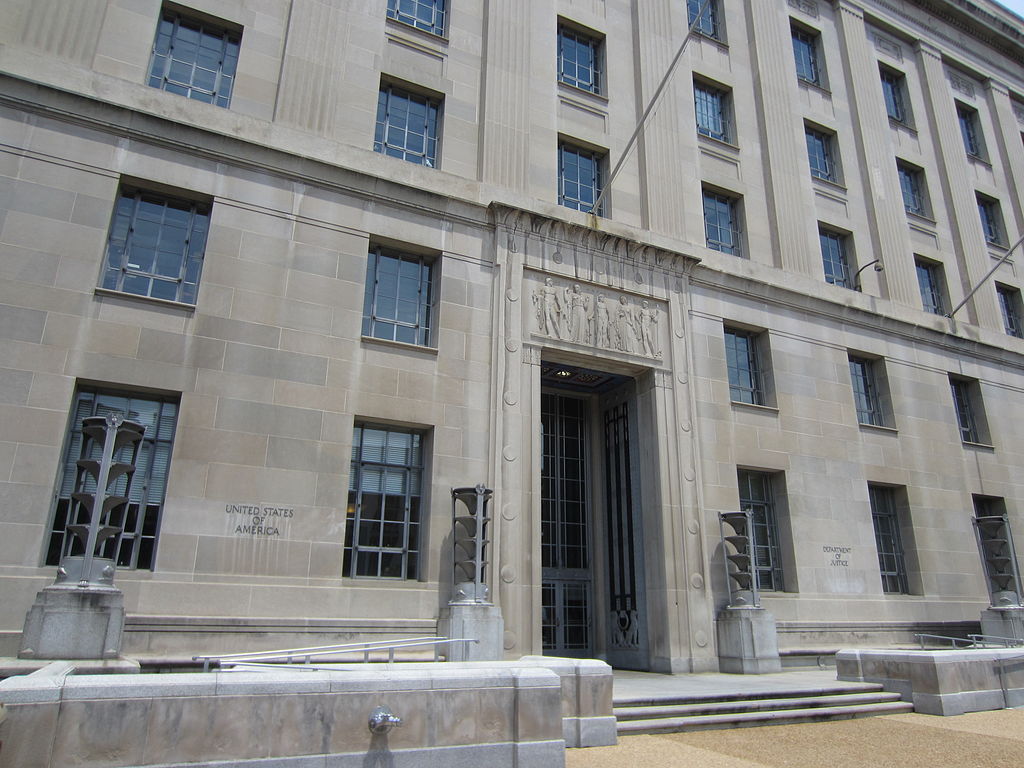The Privacy Rights of Terrorism Defendants, Muslim and Non-Muslim
The official position of the Department of Justice—according to a legal brief filed in February—is that association with a terrorism charge is so stigmatizing that defendants should not be publicly identified, even after conviction. Doing so would lead to “harassment, embarrassment, barriers to reintegration and renewed public attention.” It might even expose defendants to “the potential for violence or renewed contact” by extremist groups “plotting future terrorist attacks or intimidating witnesses.”

The official position of the Department of Justice—according to a legal brief filed in February—is that association with a terrorism charge is so stigmatizing that defendants should not be publicly identified, even after conviction. Doing so would lead to “harassment, embarrassment, barriers to reintegration and renewed public attention.” It might even expose defendants to “the potential for violence or renewed contact” by extremist groups “plotting future terrorist attacks or intimidating witnesses.”
This privacy-minded statement was issued to counter a Freedom of Information Act (FOIA) lawsuit that I filed along with the Brennan Center for Justice at New York University Law School, requesting the release of docket numbers for terrorism-related prosecutions. The request is intended to generate comprehensive data on terrorism and counterterrorism in the United States, as I noted in a Lawfare piece last year.
In the brief, the department argues that defendants’ privacy rights justify withholding this information: “if there were ever a list that could draw ‘special attention’ and ‘raise heightened concerns’”—which the department maintains should be considerations for FOIA privacy exemptions—“it is a list of terrorism convicts.”
This is a puzzling argument, since the Justice Department itself periodically releases a list of people convicted in international terrorism-related cases, a list that includes Muslim Americans who were potentially linked to or inspired by designated foreign terrorist organizations. This list was requested by and released to then-Sen. Jeff Sessions, who posted the list on his Senate website. (When Sessions later became attorney general, his Department of Justice denied our FOIA request for a complete list of terrorism-related cases.) An updated version of the list of international terrorism defendants was released in response to a FOIA request by Stanford Law Professor Shirin Sinnar. Yet the department has never released a list of people convicted in domestic terrorism-related cases.
The Justice Department also actively publicizes certain cases through press releases. The department’s Office of Public Affairs has issued more than 20,000 press releases since 2001, hundreds of which named defendants in terrorism-related cases.
Here, too, there is a discrepancy between Muslim American and non-Muslim defendants—the Office of Public Affairs was more than twice as likely to issue a press release identifying a Muslim defendant than a non-Muslim defendant in cases involving violent extremism, according to my analysis.
Two-thirds of Muslim Americans involved in plots of violent extremism—according to news reports and court documents that I have gathered—were named in these press releases.
By contrast, the press releases named only one-quarter of defendants involved in right-wing violent extremism, according to a study published recently in the Intercept. The Intercept describes these cases as “right-wing extremists prosecuted in federal court since 9/11 [who] were allegedly involved in crimes that appear to meet the legal definition of domestic terrorism.”
For the reasons described in my earlier piece, comprehensive data are necessary to meaningfully compare the department’s efforts to prosecute Muslim and non-Muslim individuals accused of terrorism, but the observations we can make based on limited available data are nonetheless notable: Of the terrorism-related defendants who were named in these press releases, approximately 60 percent of non-Muslims and 80 percent of Muslim Americans were identified prior to conviction.
In fact, the department still has press releases on its website announcing the indictment of defendants in terrorism-related cases who were later acquitted—for example, the woman whose husband killed 49 people in a nightclub in Orlando, Florida. No press releases were issued after acquittal.
The Justice Department has the ability to dramatically increase the amount of publicly available information on domestic terrorism. So far, it has failed to provide persuasive reasons why it can’t. Its claims to be concerned for the privacy of terrorism defendants would be more convincing if it had a track record of protecting the privacy of Muslim defendants as consistently as the privacy of non-Muslims.



.jpg?sfvrsn=d27bd863_5)
